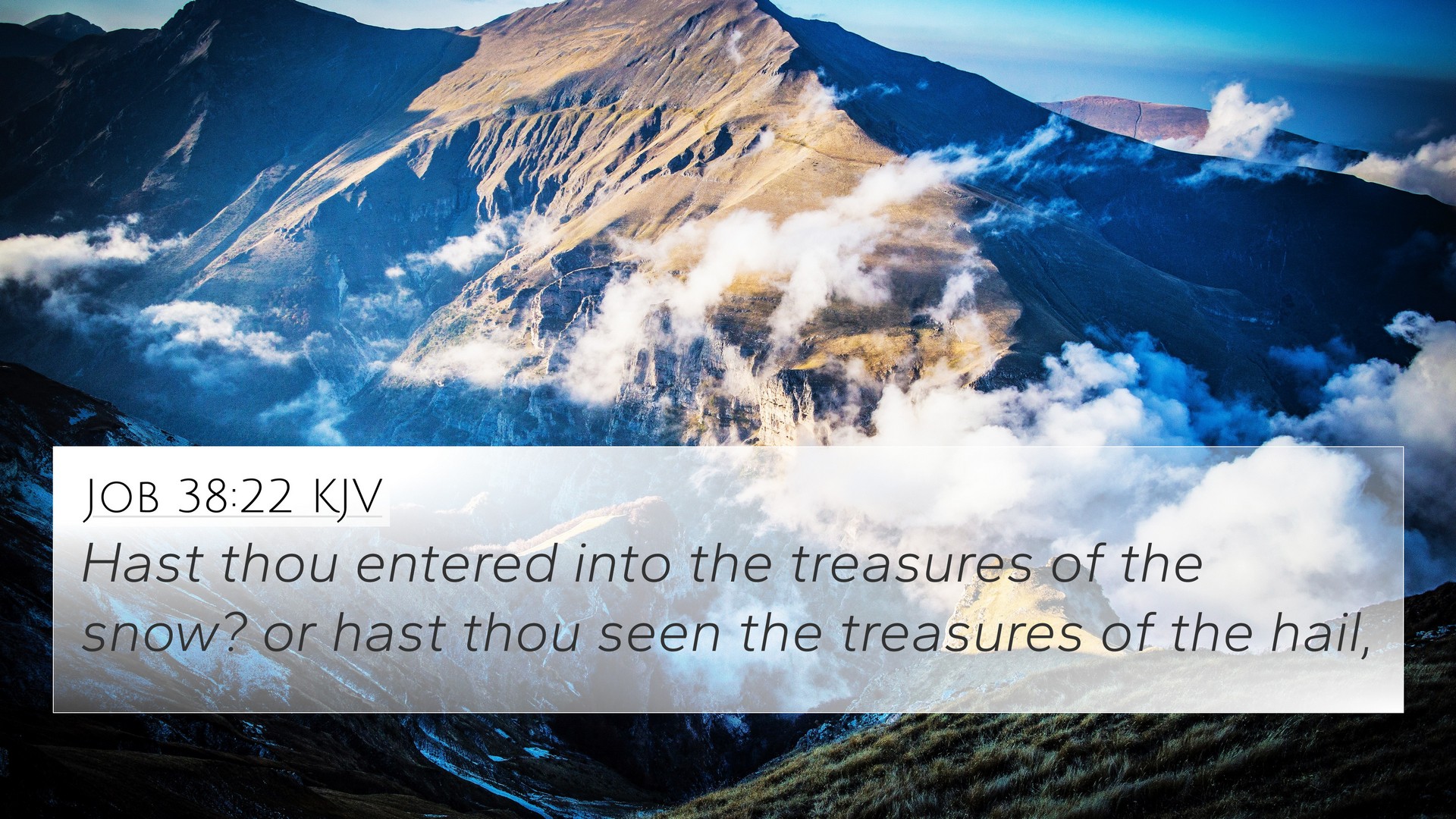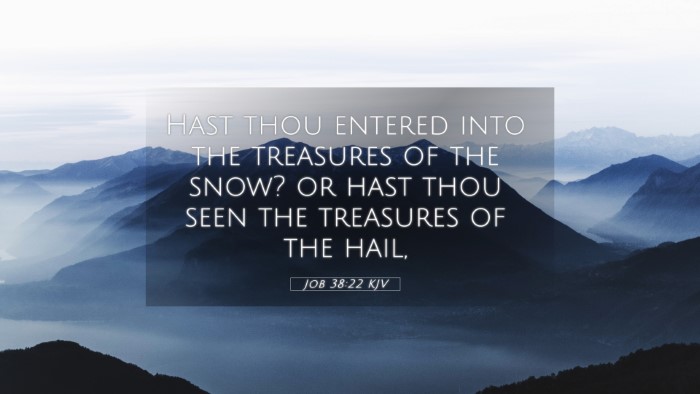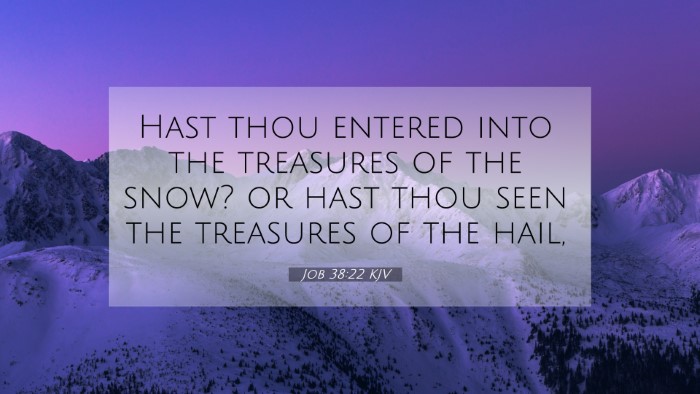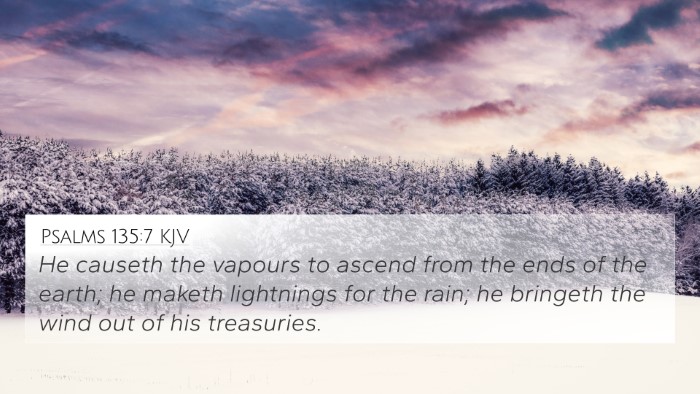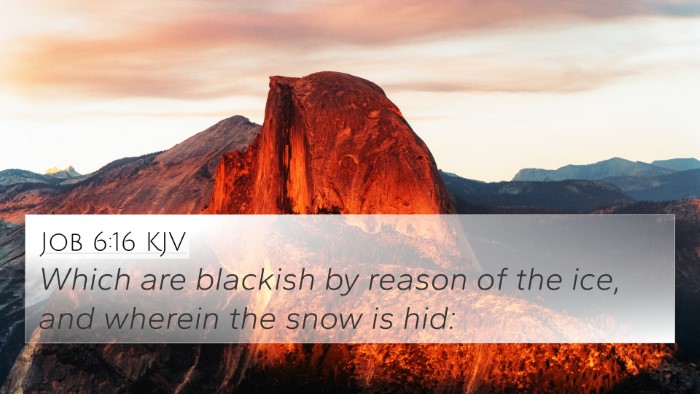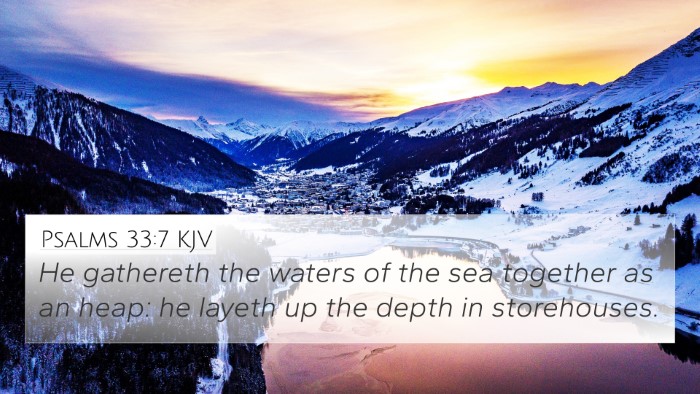Understanding Job 38:22
Job 38:22 states:
"Hast thou entered into the treasures of the snow? or hast thou seen the treasures of the hail?"
This verse marks a significant turning point in the Book of Job, as God begins to respond to Job's lamentations and questions regarding his suffering. In this summary, we will explore the rich meanings of this verse as derived from the insights of various public domain commentaries, including those by Matthew Henry, Albert Barnes, and Adam Clarke.
Key Themes and Meanings:
- God’s Sovereignty: This verse highlights God's sovereignty over creation. The treasures of snow and hail symbolize God's control over the elements, demonstrating that He is the ultimate authority over nature.
- The Mystery of Creation: The rhetorical questions posed by God emphasize the depths of divine wisdom and the mysteries of the universe that are beyond human comprehension. It challenges Job, and the reader, to acknowledge the limits of human understanding.
- Theological Implications: By asking if Job has seen the "treasures" of the snow or hail, God invites Job to consider His power and the intricate details of creation, which reflect His glory and wisdom.
- Manifestation of Divine Power: The imagery associated with snow and hail illustrates God's creative power and the beauty found within the natural order, reinforcing the idea that every aspect of creation serves a purpose.
Commentary Insights:
Matthew Henry
Matthew Henry notes that the mention of "treasures" implies not only the beauty of snow and hail but also their functional roles in God's creation. He suggests that these elements are not without purpose and serve to illustrate God's grandeur.
Albert Barnes
Albert Barnes emphasizes the rhetorical nature of God's questions. He argues that they are meant to humble mankind and remind individuals of their limitations in knowledge compared to divine wisdom. Barnes reflects on how nature serves as a testament to God's omnipotence.
Adam Clarke
Adam Clarke interprets this verse as an invitation for Job to reflect on the loftiness of God's creation. Clarke connects the idea of 'treasures' to the hidden aspects of nature and encourages a deeper appreciation for the creator's artistry.
Bible Cross-References:
Job 38:22 connects with several other scriptures that further illustrate its themes:
- Psalm 147:16 - "He gives snow like wool; He scatters the frost like ashes." This verse echoes God's command over the weather and highlights the beauty and function of snow.
- Isaiah 55:10 - "For as the rain comes down, and the snow from heaven, and do not return there, but water the earth..." Here, snow is also seen in conjunction with God's purpose, further enriching this theme.
- Matthew 5:45 - "...for he makes his sun rise on the evil and on the good, and sends rain on the just and on the unjust." This emphasizes God's control over elements that benefit all of creation.
- Job 37:6 - "For to the snow he says, 'Fall on the earth...'" This demonstrates God's authority over the snow and its purpose in the created order.
- Romans 1:20 - "For his invisible attributes, namely, his eternal power and divine nature, have been clearly perceived, ever since the creation of the world, in the things that have been made." This reinforces the idea that creation reveals God's attributes.
- Proverbs 8:28-29 - "When he established the clouds above...when he assigned to the sea its limit..." These verses emphasize God's governance over natural phenomena.
- Hebrews 11:3 - "By faith we understand that the universe was formed at God’s command..." This aligns with the idea that our comprehension of creation reflects God's wisdom.
Conclusion:
Job 38:22 serves as a profound reminder of God's omnipotence, inviting readers to explore the complexities of creation and recognize their own limitations in understanding divine wisdom. Through the interconnection of scripture, the intricate relationships between natural phenomena, and God's sovereignty, believers are encouraged to deepen their faith and understanding of the divine.
Keywords:
- Bible verse cross-references
- Connections between Bible verses
- Cross-referencing Biblical texts
- Comparative Bible verse analysis
- Thematic Bible verse connections
- Inter-Biblical dialogue
By utilizing tools for Bible cross-referencing, individuals can find meaningful connections between various scriptures, enhancing their study and understanding of Biblical themes.
